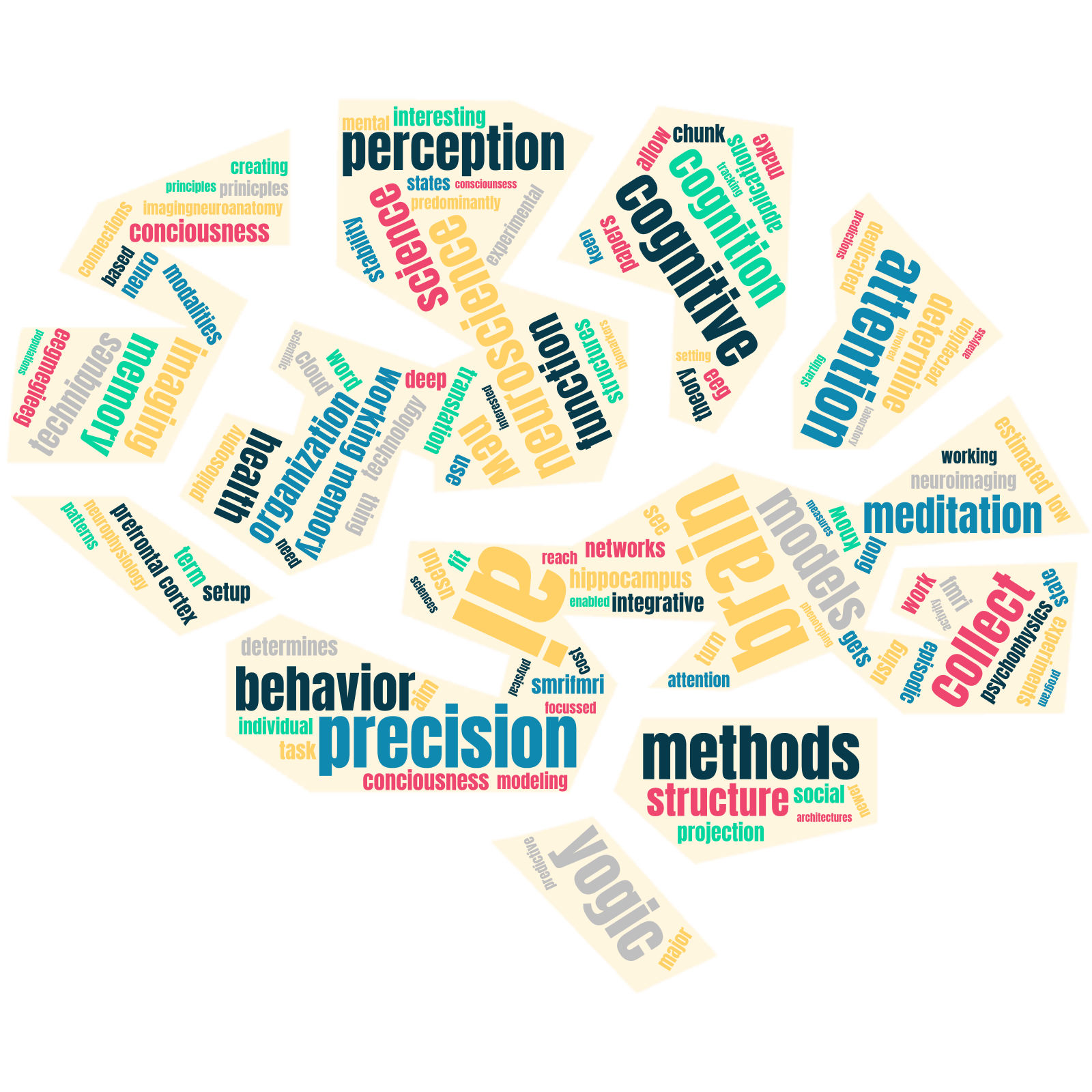

The lab works on diverse areas of basic and applied neuroscience hence the name Integrative Neuroscience and Technology lab. We'd like to understand how the brain is organized in terms of various brain structures and organization of networks (structure). Then we'd like to understand the function of various parts of the brain. Once we have understood this, we'd like to create applications which are useful for the world.
The lab uses various tools to understand the brain like psychophysics, cognitive testing, neuroimaging (sMRI/fMRI) and neurophysiology (EEG/MEG/iEEG). We also think that philosophy about science impacts theory which in turn determines the experimental setup we create, the experiments we do and what we can know about the brain, so we think deeply about philosophy, theory, and experimentation methods.
Some project in the group are as follows: